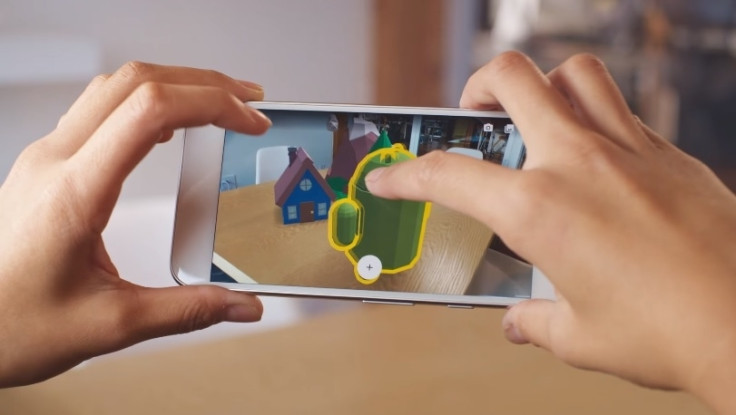Google to bring new ARCore augmented reality platform to 100m smartphones in 2017
ARCore is here to take on Apple's ARKit.
Google will bring the next-generation of Pokemon Go-style augmented reality to 100m Android devices before the end of 2017.
On 29 August, the computer giant announced ARCore, a platform for Android app developers to build augmented reality games and experiences.
Just like Apple's ARKit, the platform will see developers create apps where virtual objects can be placed into the real world around you, using your phone's camera and motion tracking capability.
In its simplest form, AR in this guise means you can focus the camera on a table then see virtual characters and objects appear on it. Walk around the table and your view of the object through your phone screen adjusts exactly as it would if the object was really there.
Going beyond simply placing an object in front of you, Google says ARCore understands lighting in your environment, making shadows cast by virtual objects fall accurately on the real-world floor.

Google states: "ARCore's understanding of the real world lets you place objects, annotations, or other information in a way that integrates seamlessly with the real world. You can place a napping kitten on the corner of your coffee table, or annotate a painting with biographical information about the artist. Motion tracking means that you can move around and view these objects from any angle, and even if you turn around and leave the room, when you come back, the kitten or annotation will be right where you left it."
ARCore is Google's latest weapon in its battle against Apple for smartphone supremacy. The iPhone maker is preparing to bring apps made using ARKit to the iOS App Store later this year. Developers have been working on such apps through 2017, and the first batch will be available when iOS 11 is released to the public in September.
Google's advantage could lie in it selling more Android handsets than Apple sells iPhone. However, while there are more Android phones in use than iPhones, Android customers are less likely to be using the up-to-date software required to run ARCore.
Whereas, iPhone users historically have upgraded to the latest iOS just days after Apple makes it available. Google's problem here lies with the need for manufacturers to modify each version of Android to work on hundreds of different models of phone or varying screen sizes and resolutions; in 10 years the iPhone has had just four different screen sizes.
Google claims ARCore, which only works on the Samsung Galaxy S8 and Google's own Pixel and Pixel XL phones for now, will be made available to 100m Android devices before 2018.
According to Google: "We're targeting 100 million devices at the end of the preview, and working with manufacturers like Samsung, Huawei, LG, Asus and others to make this possible with a consistent bar for quality and high performance."
© Copyright IBTimes 2025. All rights reserved.






















